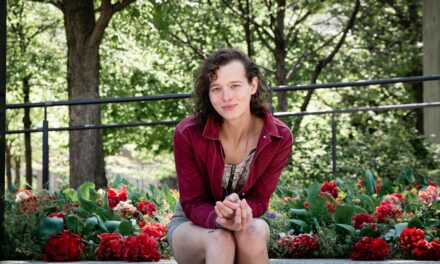Lingoda, the leading online language learning platform, is thrilled to announce its collaboration with renowned travel influencer, polyglot, Netflix show host and brand ambassador Jo Franco for an exciting and transformative journaling event titled “Learn Languages & Design a Multilingual Life”. This unique partnership aims to inspire learners worldwide to enhance their language learning journey through the power of reflective writing.
Jo Franco, known for her passion for exploration and learning, has captivated audiences around the globe with her infectious energy and genuine love for languages. As an experienced language learner and an advocate for personal growth, Jo embodies the values that Lingoda stands for, making her and JoClub, Franco’s journaling company, the perfect partner for this empowering event.
The language-themed online event hosted by Jo Club and Lingoda will take place on Sunday, June 25 at 12:00 pm EST
Tell us about your love for traveling and what it brings to your life
I started traveling at a young age when my family moved from Brazil to Connecticut when I was five years old. Being an undocumented immigrant, I felt caught between two cultures and coined the term “in-betweener.” This confusion turned into a way of seeing the world and sparked my love for travel and languages.
What was your first solo trip?
I began with local trips to places like NYC, Boston, and Baltimore, but my real solo adventure started in Italy after getting my green card. It was the first time in 25 years I had actually made a decision for myself, not for my family, friends, career, or anything other than what my heart desired. I fell in love with an Italian, learned the language, and left feeling empowered that I could walk into places where I barely spoke the language and feel whole.
How did you learn how to communicate in a foreign country without knowing the language?
Communication without language barriers became my specialty. I use wacky and overly expressive facial expressions and body language to connect with people – they usually get the message that I’m there to learn, be nice, and have a good time. Learning basic phrases like hello, thank you, goodbye, and please shows respect for the culture even if you don’t have time to get fluent before you go. If you want to go further, learn how to say “How do I say” and point to objects, and make sure you learn how to say what you’re allergic to! I may not speak Japanese but I know how to stay far away from shellfish – it usually makes locals chuckle when I say it with my eyes wide open.



What are some tips for daily language learning routines?
It’s the best time to learn languages because our content has no borders. I listen to Spanish in the morning, watch Dutch at night, cook a recipe in Portuguese, and do a workout in Greek. My main tip for language learning is to incorporate it into your routine to make it a (daily) habit and curate your feeds with podcasts, music, and social media content in your target language. Take notes, review them regularly, and build relationships with language practice partners so that you can share your favorite new finds of the week. The bonus is that you’ll have the best playlists and so much new goodness to consume that you wouldn’t have known about had you not started your language journey.
It’s just important that you decide what language learning routines work for you. I’m a big believer in doing a mixture of kind of “winging” it and figuring it out as I go along but also in actually taking language classes with professional teachers who can guide you on your way to fluency. Which is also why I’m learning with Lingoda because with them I am able to take my online language classes from where and when I want to, which fits my busy lifestyle perfectly. And their classes focus on real-life language and cultural context and that’s exactly what I need for traveling. I can always choose which class I am going to take next and what the content will be about – whether it’s ordering at a restaurant, asking for directions or even learning how to lead a business meeting in my new language. And that benefits me greatly in all areas of my multilingual life.
How was your experience in Berlin and with Lingoda?
In June 2022, Lingoda had challenged me to learn German with the Lingoda Sprint because they a) knew how much I loved a challenge and b) knew how I just loved learning new languages. And the Sprint Challenge is designed to get you speaking a new language confidently in just two months with language classes either everyday or every second day for 60 days. And after I took part in the Lingoda Sprint, their team invited me to Berlin to try out my new German skills – which was (not gonna lie) very scary and so much fun at the same time! But I must say that the Lingoda language classes had really prepared me well because they focus so much on human interaction and conversation time and really encourage you to speak the new language during class, and that’s what language learning and leading a multilingual life is all about for me – making connections all over the world by speaking many languages.
And my favorite Lingoda experience in Berlin in summer 2022 was when I confidently ordered breakfast in German at a coffee shop and met a 20-something waiter who was patient enough to sit with me while I read my choices out loud. The waiter was so impressed that I was even trying when he spoke English that he invited me to hang out and practice German in the park. We talked about hard-to-pronounce words and how he was getting ready to take a European road trip in true free-spirited German energy. It was one of those travel encounters that made the trip so much more special; that wouldn’t have happened without learning German through Lingoda. The language became a catalyst for meaningful connections during my trip, and we’re still in touch. Hi Paul!
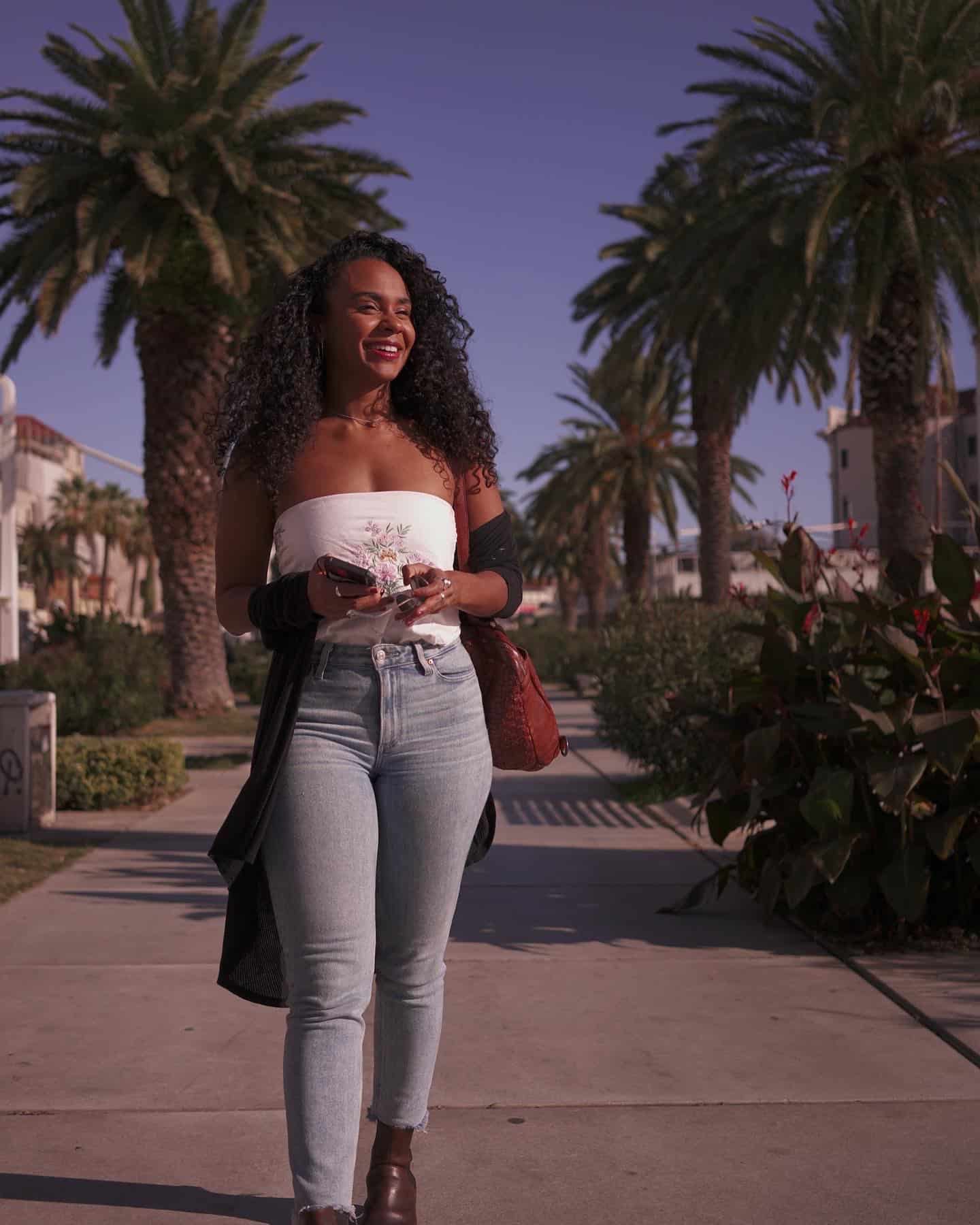
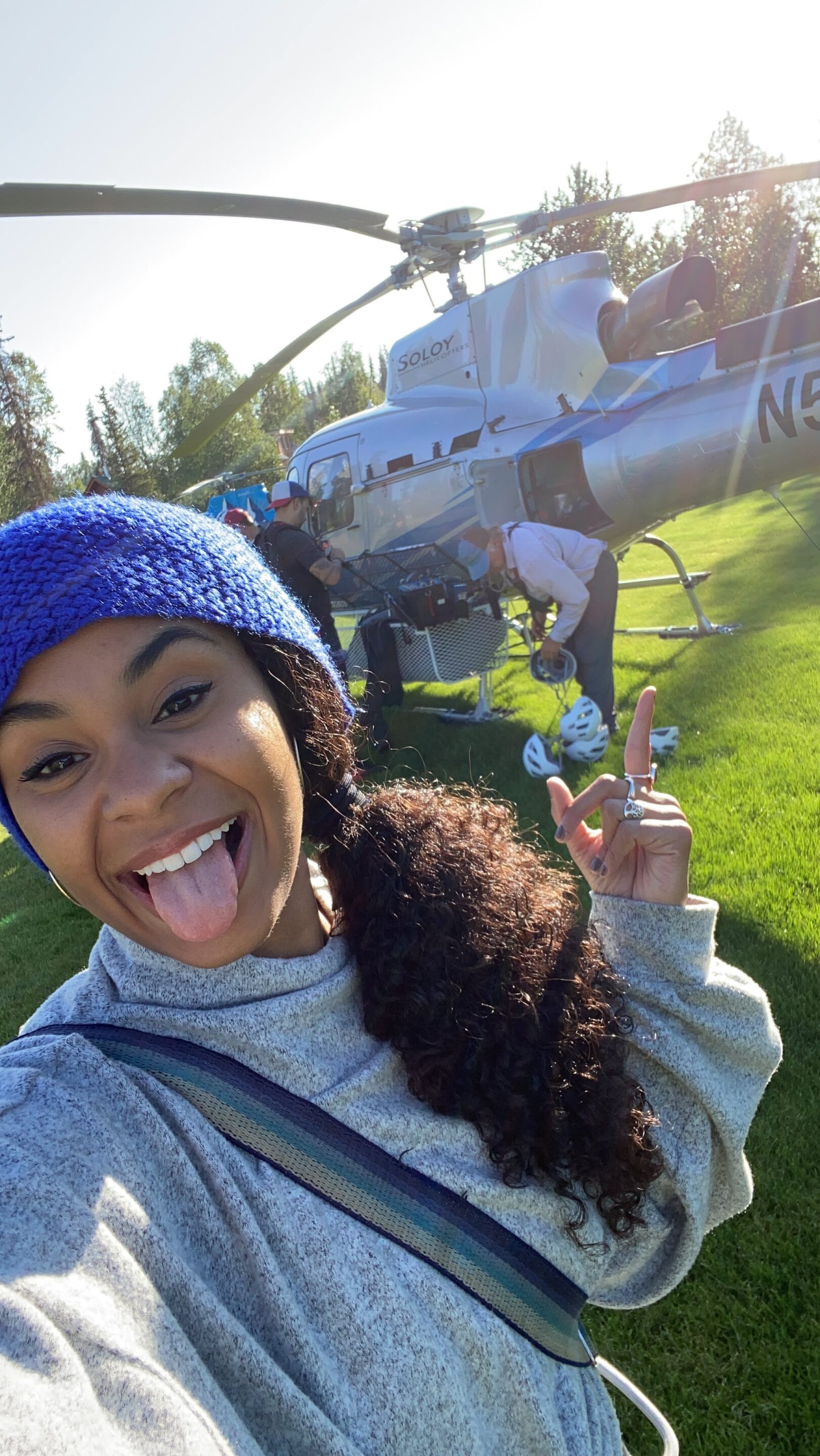
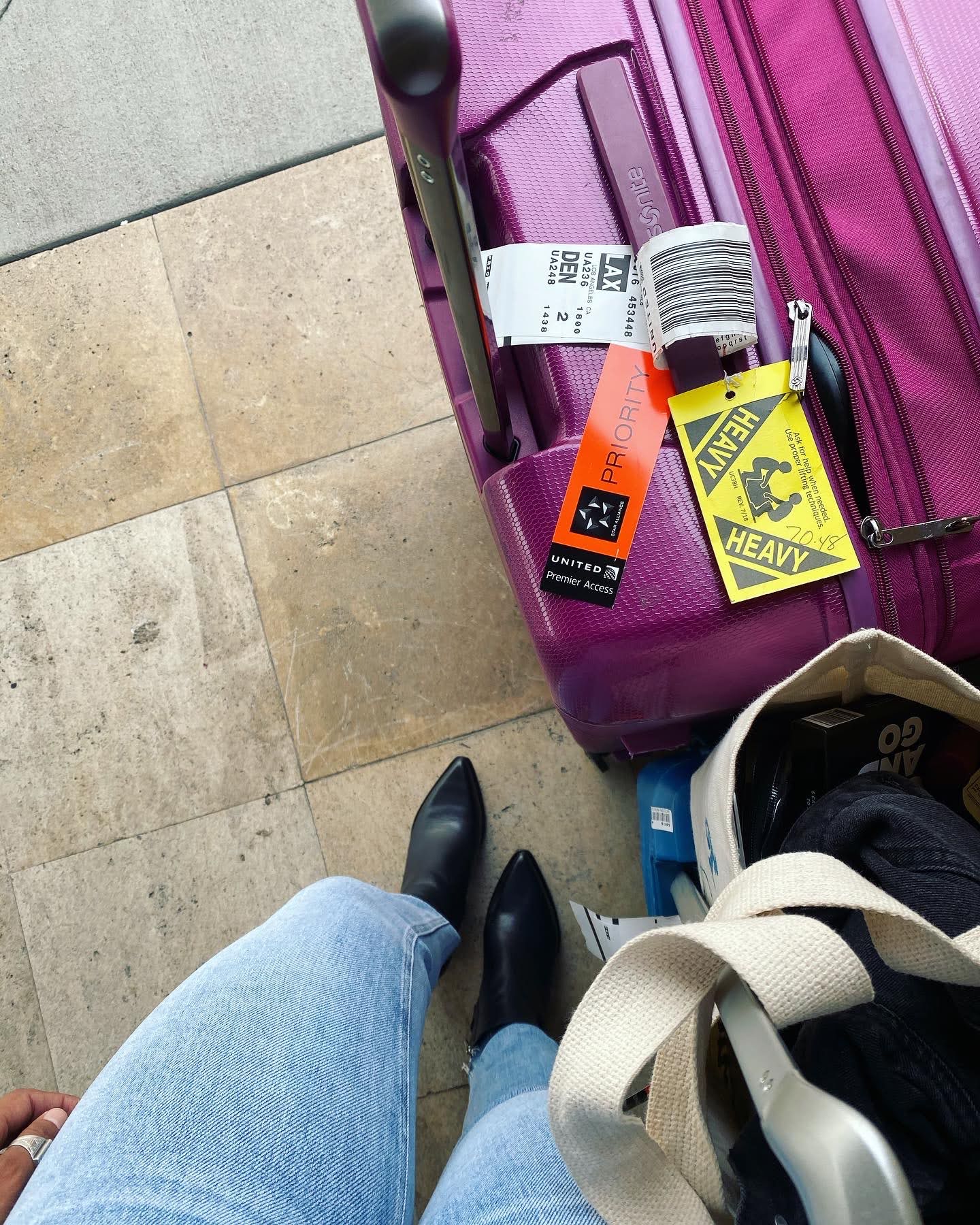
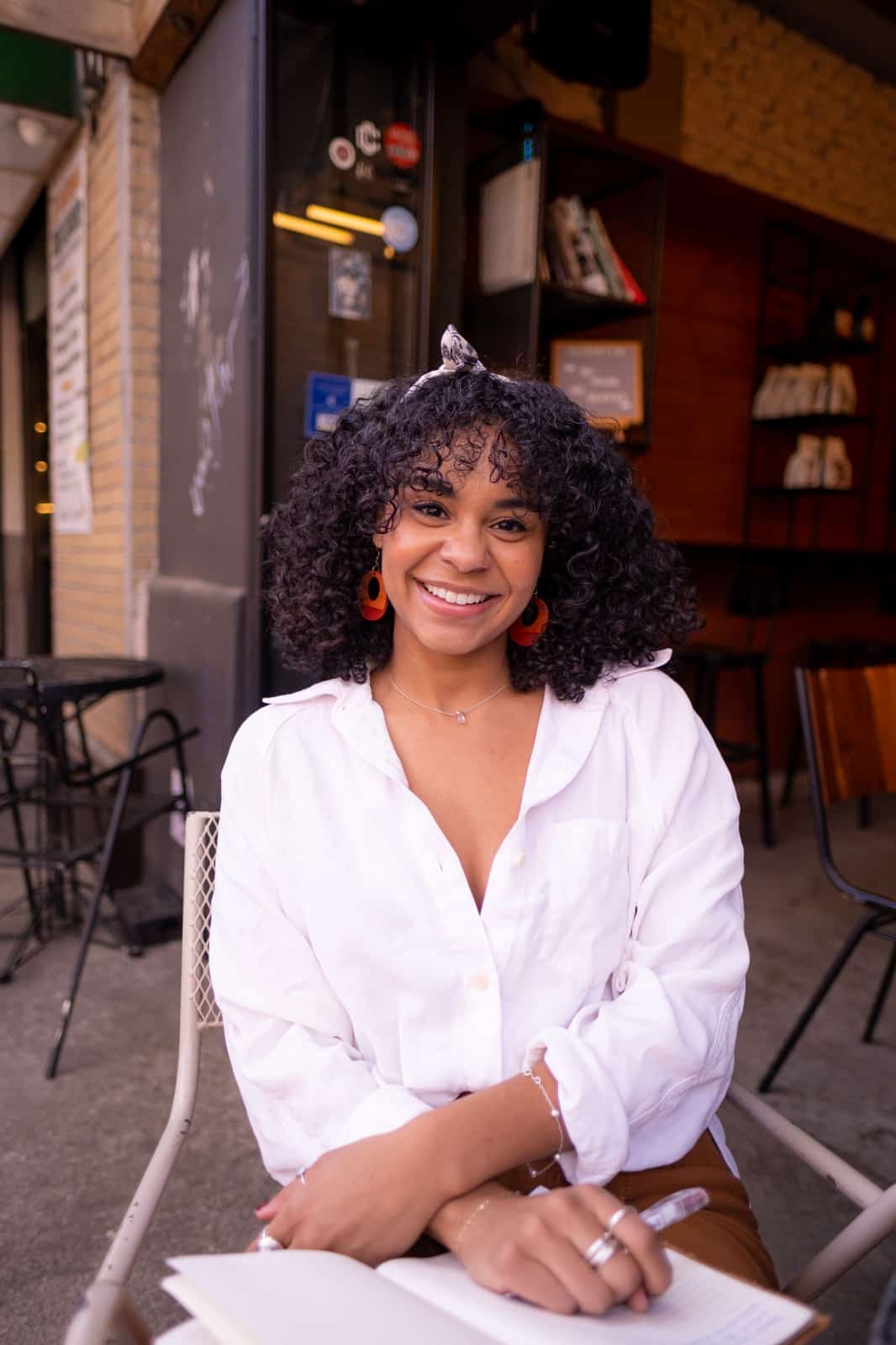
What are some of your favorite things about Germany and German culture and language?
A lot of my German friends have this dry, deadpan humor that is so good. And then of course, I always love their spirit of drinking beer and having that fun, loud energy and making you feel included even if you’re an outsider. I’ll be in those Berlin parks until the wee hours of the night just hanging out with my friends. They’re the kind of people that organize group events and want to make sure that you’re having a good time in a big group setting. I love the community of it. But I have to say that taking German classes really helped me make connections in Germany easier because I was able to communicate more confidently from the get-go.
What are the best ways to get embedded into a new culture?
Before you go look for global communities online that connect you with locals! JoClub, my journaling company, has a “global hangouts” thread where journalers meet around the world all the time. What’s cool about that is that you feel safe and connected to a local before you even go, and you’ll get more insight into the culture through that friendship. Finding curated and private groups of travelers is a major hack. Or befriend your teacher and take them out to coffee in their city in exchange for a city tour and hear stories about their lives. You’ll learn a lot about culture and have a great time making connections. Find your language learning community and don’t be afraid to make language mistakes – just do your best and people will appreciate it.
What are some tips to get fluent in a new language as fast as possible?
To get fluent fast in any language, focus on daily input and output. Identify how YOU learn, whether visual, auditory, kinesthetic, or written, and incorporate relevant resources into your routine.
If you’re a visual learner, use flashcards, picture books, and sticky notes around the house to identify objects with labels. Auditory learners can benefit from audio courses, podcasts, and music. Kinesthetic learners should prioritize speaking practice, and playing games, whether online or in person. If you enjoy writing, make it a habit to write down new words or phrases and answer journal prompts to create a personal context for what matters most to you.
If you want to learn fast, there’s no shortcut but to include these habits in your life, and you need more than one resource to really make it stick. For example, if you’re auditory, listen to a daily podcast and write down three new things to research. Aim for just 15 minutes a day, and for even faster progress, engage in daily input and output exercises. Consume content (input), and take lessons and speak with locals to exercise what you consumed (output). If you do that on a regular basis, you’ll be golden.
And again, don’t be afraid to commit to your language classes if you can. There’s plenty of different options out there – with Lingoda actually taking the offline language school experience to a more flexible online setting. And with them you can choose how fast you want to crush your language learning goals in your new language and take as many as one language class per day or just a couple per month if you’re busy with life.
You mentioned journaling as a learning technique. How did it help you in your travels?
Journaling for language learning is like a magical tool that I hadn’t tried until last year when I created a free 21 day language learning challenge where I journaled every single day in my target language. I was a beginner in Greek, and even with that limited knowledge and an entirely different alphabet, I was able to start really expressing myself by the end of the 21 days.
My company JoClub teaches people how to start journaling, and the members are so diverse and crave language learning that one day I asked myself, “Can I combine my two loves of journaling and language learning and create something super unique that will actually help people in their fluency?” The answer was YES. I tried it myself and was shocked by how much Greek I learned by the end of the 21-day challenge. You start translating your personality in your target language and become someone different altogether.
They say that when you speak a second language, you think more logically, whereas you’re more emotional with your mother tongue. After realizing this, I began using writing in different languages as a way to unlock more logical and sound choices. Journaling in a foreign language is a tool that allows you to change the radio signal in your brain to make more aligned decisions.
Because if you speak more languages, you can actually unlock different ways of thinking based on the expressions at your disposal and your emotional connection to those languages.
And for my next historic JoClub event, I partnered with Lingoda because I absolutely believe in their communicative approach to language learning – mastering a language means being able to speak it with confidence. They are a language-learning company that is all about making connections and building bridges through the power of language learning, which is what I am just so passionate about.
And on Sunday, June 25, from 12:00 pm – 1:30 pm EST, our language learning and journaling community will come together for our free online event, “Learn Languages & Design a Multilingual Life,” hosted by me and Pippa Wentzel, Lingoda’s Curriculum Lead. Together, we want to inspire learners worldwide to enhance their language learning journey through the power of reflective writing and give our participants expert tips on how to keep growing their multilingual brains, and have the chance to meet global language learners and journal in their target languages. Come join us!





